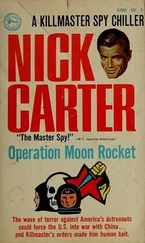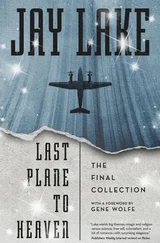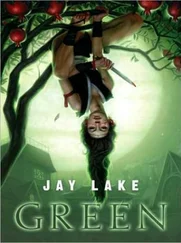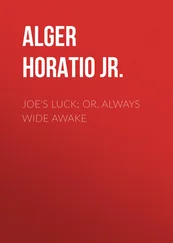Instead I kept driving, cautiously peering over the dash in case Markowicz’s pet gorilla happened to be a sniper, too.
The Cub took off behind me. It banked overhead, dangerously low. If he were a civilian, the Civil Aeronautics Administration would have had his license just for that. The plane buzzed the road, flying low over me. The little dark guy with the rifle must be flying it. He waggled the wings as he passed over me, then gained altitude and headed out to the northeast, in the direction of El Dorado.
Somehow I doubted the wing waggle was the traditional friendly greeting of a pilot passing overhead. I interpreted it as more of a threat. “I’ll be back,” they were telling me. After my performance with the car, I felt ready for them, but I knew perfectly well once I calmed down, it would be time to panic all over again.
Those darned Nazi agents would come after me in force next time.
With the Cub in the air and departed from the scene, once I got out onto Haverhill Road I pulled over into the weeds at the side of the road to inspect the damage to Doc Milliken’s car. The fighting thrill already receding, I realized with a desperate wince that I could never afford to repair this Cadillac. I walked around it and took inventory of the damage anyway, out of a sense of morbid curiosity. It would be nice to know how much extra trouble I was in, on top of everything else.
The windshield was shattered, the radio was blown out and there was another bullet in the dashboard. I had smashed the right front fender rather badly against the barn door. Both headlights were broken and the grill smashed inward. There were green and brown rags from Markowicz’s uniform caught on the hood ornament, and two bloody dents on the hood. Three of the hubcaps were missing.
At least it still ran.
Something bothered me about everything that had just happened, something more than the obvious. I couldn’t put my finger on it yet, but the back of my mind nagged. I studied the front of the Cadillac, wondering how I was ever going to make this up to Doc Milliken. I let the elusive thought find its own way out.
Captain Markowicz. I rubbed my forehead. When I hit him, he had flailed both his arms.
Markowicz didn’t have a broken arm.
No cast, no sling. And he did tell the other fellow that he was worried about a warrant.
The real Markowicz was dead in Kansas City, the Nazi imposter had a broken arm. This Markowicz was alive and well, with the use of both arms, at least before I had gotten through with him.
And I knew what little I did about Markowicz because Doc Milliken and Sheriff Hauptmann had explained to me how everything worked. Someone was lying, about his identity, about the situation, about who was who. I couldn’t figure why it would be Milliken and Hauptmann. They said there was a dead man in Kansas City. Doc Milliken had set someone’s broken arm. Was the dead man the Nazi, and this Markowicz real? Maybe this Markowicz was dead now, too. I’d run him over with an automobile. How tough could one man be?
Milliken and Hauptmann had lied, somewhere in the chain of events. Nothing lined up, not now that I had seen a Captain Markowicz, in uniform, with two good arms.
Maybe the Sheriff and the doctor were in cahoots with the Nazis. They could have been lying to me all along. That would explain Hauptmann’s interest in my engineering notebook. Looking for clues about what I knew.
That would mean that Dad hadn’t wandered off or been kidnapped at all. Hauptmann had covered for Truefield when I blew my stack. Maybe Deputy Truefield had finished the job someone had botched earlier.
I sat down on the crumpled bumper of the Cadillac and shook my head, trying to clear it. The pieces didn’t line up no matter how I laid them out. I didn’t have a clue who was telling the truth and who was lying. The one person I could trust was Floyd, and that was a sad comment indeed. I knew him too well.
If the Markowicz I had just run down really was CID, I was in big trouble with the Army. Nazis were after me. I couldn’t trust the Sheriff’s Department or the Augusta Police. Ollie Wannamaker’s suggestion of a business trip to Kansas City was sounding awfully good right now. The only hope I had was that the two from the airplane hadn’t gotten a good look at me.
At least I hadn’t been driving the Hudson. They could hunt Doc Milliken all they wanted.
“What is happening, my brother?” It was the voice of the aircraft again, quietly in my ear once more now that it didn’t have the Cadillac’s radio to talk through.
“We’re in trouble,” I said glumly as I glanced over at the carpet square back on the front seat. Somehow it had survived the bouncing and the bullets with flying out of the car. The smoldering seemed to have stopped, too, which I took to be good news.
“Perhaps I can help.”
The scary part was, at this point it seemed reasonable to be having a conversation with a scorched piece of carpet. It was easier to think of it as talking to the floor mat than it was to work through the catalog of impossibilities involved in accepting that I was speaking to an airplane. A talking floor mat was just fairy tale magic. A talking aircraft was a truly frightening piece of engineering.
I explained what was going on as best I could, laying everything out from the day the shipment came in at the train depot. Was that really only three days ago? The very thought made me groan, interrupting my story for a moment of self-pity.
If there was a Nazi agent listening in, too bad. I couldn’t imagine how things could get much worse.
About twenty minutes later, as I was finishing explaining my troubles to the carpet and the radio receiver hidden beneath it, Reverend Little’s Chevy flatbed came puttering up Haverhill Road, the back loaded with tired volunteer fire fighters. His brakes squealed and creaked as he stopped next to where I sat on the bumper of the Cadillac. The Reverend leaned out of the cab window. I stepped over to talk to him.
“You all right, Vernon?” He nodded at Doc Milliken’s Cadillac. “Seem to be having some car trouble there.”
I glanced over my shoulder. Trying to see it through Reverend Little’s eyes, I realized what a disaster the car was. I smiled. “She still runs, Reverend. I’ll make it home.”
Reverend Little nodded sagely, although I could see that he was bursting with questions. The Bellamys’ battered Willys pickup rattled up behind the Reverend, then pulled over. Floyd and Mr. Bellamy jumped out and walked toward me.
“We’ll make sure young Ventnor here gets home okay, Tom,” called Mr. Bellamy to Reverend Little. His voice was raspy, but he sounded healthier than he had all year.
“Right,” said Reverend Little, grinding the gears of the Chevy. He smiled broadly at me. “See you later, Ventnor . You might want to wash and wax that Cadillac before you give it back to Doc Milliken. I expect he’d appreciate the effort.” The Chevy trundled off along the muddy road, trailing the laughter of tired men.
Floyd and his dad just stared at me for a moment, Mr. Bellamy with an axe on his shoulder. Floyd shook his head while Mr. Bellamy took a walk around the Cadillac, making tsk-tsk noises with his tongue.
“Now, son,” said Mr. Bellamy, “I am afraid to ask what you have been doing with this here automobile.”
Floyd laughed.
Oh, crud , I thought. His barn was messed up too, not to mention the old Ford. “I was attacked by some gentlemen with guns. Doc Milliken’s car was all I had to fight back with.”
Mr. Bellamy leaned over and poked his finger at the ragged glass shards lining the windshield frame. “I see. Where did this shootout at the OK Corral take place?”
“Your barn,” I said miserably. I knew where this conversation was headed.
Читать дальше












